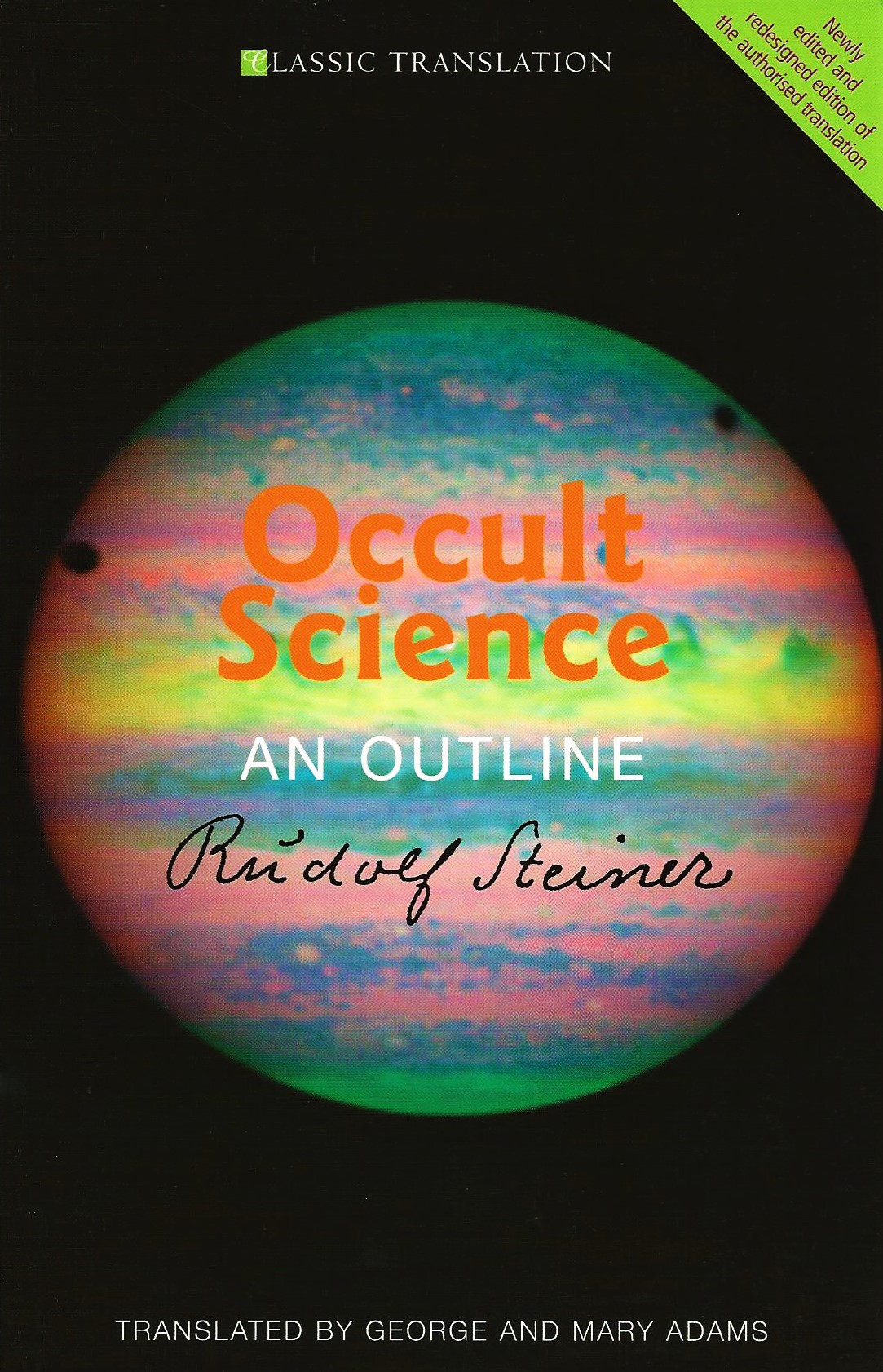Occult Science: An Outline
Written in 1909 (CW 13)
An authorized translation of this classic work, re-edited, beautifully typeset and designed, from a professional publisher dedicated to high-quality editions of Rudolf Steiner’s books and lectures.
The Anthroposophy of Rudolf Steiner is not a theoretical system, but the results of research based on direct observation. As Steiner’s research was so vast and conducted over such a long period of time, no single book can be said to contain the whole of his spiritual teaching. However, of all his books Occult Science comes closest. Steiner even referred to it as “an epitome of anthroposophic Spiritual Science.” The book systematically presents the fundamental facts concerning the nature and constitution of the human being and, chronologically, the history of the universe and humankind.
Whereas the findings of natural science are derived from observations made through the senses, the findings of Spiritual Science, or Anthroposophy, are “occult” inasmuch as they arise from direct observation of realities hidden to ordinary perception. And yet these elements of humanity and the universe form the foundation of the sense world. A substantial part of Occult Science is taken up with a description of the preliminary training needed to make such spiritual observations.
Given his energetic involvement in practical initiatives and extensive lecturing, Steiner had little time to write books. Of those he did write, four titles form an indispensable introduction to his later teaching: The Philosophy of Freedom (CW 4); Theosophy (CW 9); Knowledge of the Higher Worlds (CW 10); and Occult Science: An Outline (CW 13).
Occult Science: An Outline is a translation from German of Die Geheimwissenschaft im Umriss (GA 13).
C O N T E N T S:
Publisher’s Note
Foreword by Matthew Barton
Preface to the 1925 Edition
Preface to the 1920 Edition
Preface to the 1913 Edition
Preface to the 1909 Edition
1. The Character of Occult Science
2. The Nature of Humanity
3. Sleep and Death
4. Man and the Evolution of the World
5. Knowledge of Higher Worlds: Concerning Initiation
6. Present and Future Evolution of the World and of Mankind
7. Details from the Domain of Spiritual Science
Supplementary Notes
Notes
Translator’s Note
Synopsis
Further Reading
About the Author
Rudolf Steiner (1861–1925) was born in the small village of Kraljevec, Austro-Hungarian Empire (now in Croatia), where he grew up (see right). As a young man, he lived in Weimar and Berlin, where he became a well-published scientific, literary, and philosophical scholar, known especially for his work with Goethe’s scientific writings. At the beginning of the twentieth century, he began to develop his early philosophical principles into an approach to systematic research into psychological and spiritual phenomena. Formally beginning his spiritual teaching career under the auspices of the Theosophical Society, Steiner came to use the term Anthroposophy (and spiritual science) for his philosophy, spiritual research, and findings. The influence of Steiner’s multifaceted genius has led to innovative and holistic approaches in medicine, various therapies, philosophy, religious renewal, Waldorf education, education for special needs, threefold economics, biodynamic agriculture, Goethean science, architecture, and the arts of drama, speech, and eurythmy. In 1924, Rudolf Steiner founded the General Anthroposophical Society, which today has branches throughout the world. He died in Dornach, Switzerland.
Michael Henry Wilson (1901–1985) was born in Birmingham, UK, into a Quaker family. His mother, Theodora Wilson, met Rudolf Steiner and visited the first Goetheanum in Dornach, Switzerland. For several years he was a professional violinist and conductor. A meeting with the German curative educator, Fried Geuter, in 1929 led him to leave his successful musical career and to study at the Goetheanum and become fluent in German. Later he was a founder and director of the first curative home in the UK. He translated several of Rudolf Steiner’s works, including his highly acclaimed edition of The Philosophy of Freedom, and researched and lectured on Goethe’s theory of color. Michael Wilson lectured at Emerson College for many years after its move to Forest Row and remained connected with it until his death. He was devoted to his wife Betty and their three children, Diana, Robin, and Christopher.
Matthew Barton is a translator, editor, teacher, and poet, and taught kindergarten for many years at the Bristol Waldorf School. His first collection of poems was Learning To Row (1999). He has won numerous prizes for his work, including an Arts Council Writer’s Award and a Hawthornden Fellowship.











Reviews
There are no reviews yet